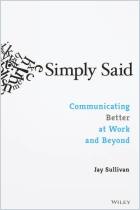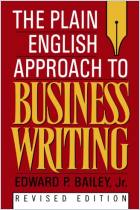Rejoignez getAbstract pour lire le résumé !

Rejoignez getAbstract pour lire le résumé !
Natalie Canavor and Claire Meirowitz
The Truth About the New Rules of Business Writing
FT Press, 2009
Aperçu
A practical, accessible guide to a vital career skill: effective business writing
Recommendation
Some people believe good writing involves big words, long sentences and complicated concepts. Nothing could be further from the truth, explain Natalie Canavor and Claire Meirowitz, co-owners of a business writing consultancy and co-authors of this handy guide. That’s why they spell out the tenets of effective business writing in 52 simple “truths,” covering virtually every type of business communication, from emails, letters and reports to websites and blogs. Their message is that good writing is concise, engaging and accessible – much like human conversation. They warn that, in this day of information overload, your communications have to meet these criteria or no one will read them. Though their writing advice is not particularly groundbreaking, Canavor and Meirowitz offer a clear, comprehensive, easy-to-use manual. getAbstract predicts that their guide will quickly become a well-thumbed resource.
Summary
About the Authors
Natalie Canavor and Claire Meirowitz co-own C&M Business Writing Services. Canavor has written for The New York Times and Newsday. Meirowitz is a long-established editor and award-winning author.


















Comment on this summary